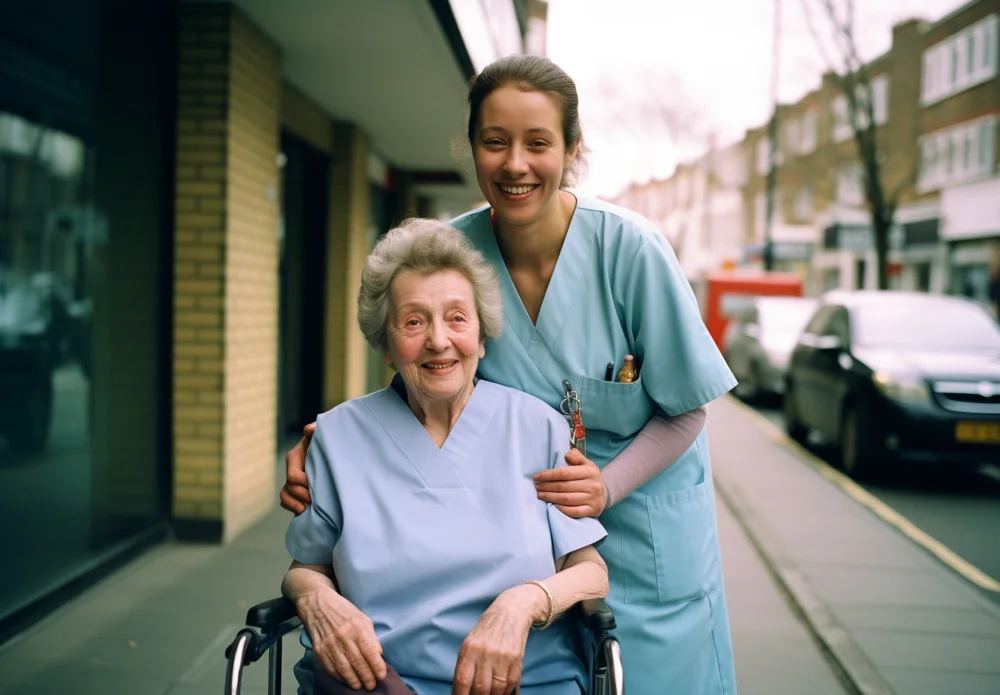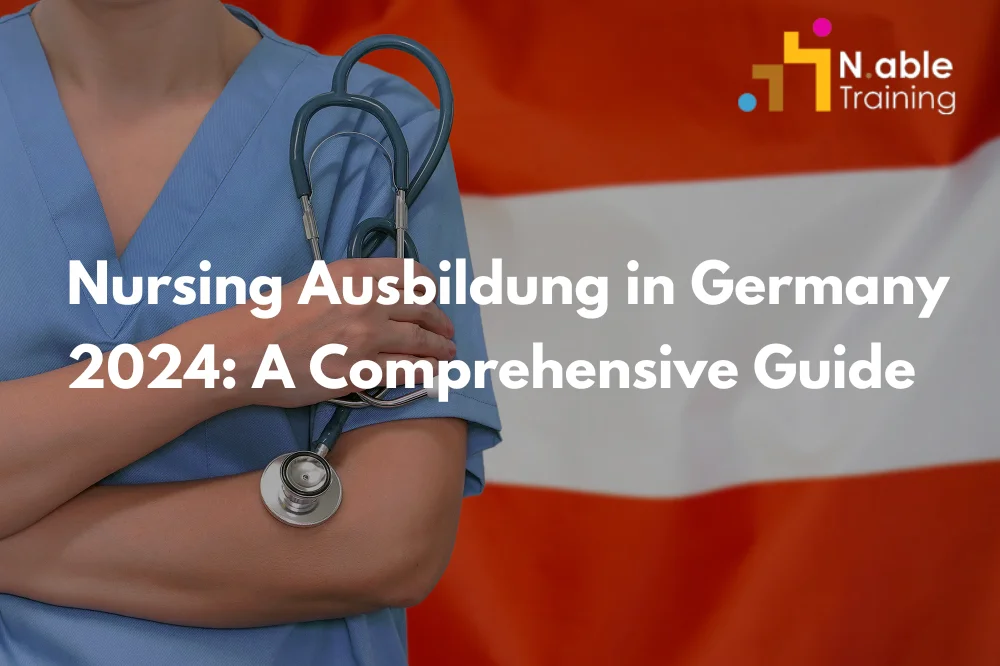Nursing Ausbildung in Germany
Germany is renowned for its robust healthcare system, and a critical part of this system is its well-trained nursing workforce. The path to becoming a nurse in Germany, known as “nursing ausbildung,” is structured and rigorous, ensuring that nurses are well-prepared to meet the demands of their profession. If you are considering pursuing a nursing career in Germany in 2024, this guide will provide you with essential information on the requirements, salary expectations, and benefits of this path.
What is Nursing Ausbildung in Germany?
The term “ausbildung” refers to vocational training in Germany, and “nursing ausbildung” specifically pertains to training programs for nurses. These programs are designed to combine theoretical knowledge with practical experience, ensuring that graduates are well-equipped to handle the challenges of nursing.
Nursing ausbildung in Germany typically lasts for three years and includes both classroom instruction and hands-on training in healthcare settings. Trainees will learn about anatomy, physiology, patient care, medical procedures, and ethics, among other subjects. This comprehensive approach ensures that graduates are not only knowledgeable but also skilled in practical aspects of nursing.
Requirements for Nursing Ausbildung in Germany
To enroll in a nursing ausbildung in Germany, there are several requirements that candidates must meet. These include:
Educational Qualifications: A minimum of a secondary school diploma (equivalent to the German Realschulabschluss) is required. For those with a higher education diploma (equivalent to the Abitur), the application process may be smoother.
Language Proficiency: Proficiency in German is crucial, as all instructions and communications in the program are conducted in German. Candidates typically need to have at least a B2 level of German language proficiency, as per the Common European Framework of Reference for Languages (CEFR).
Health Requirements: Prospective trainees must undergo a health check to ensure they are physically and mentally fit for the demands of the nursing profession.
Age: While there is no strict age limit, most applicants are between 18 and 35 years old. Younger applicants are often preferred due to the physically demanding nature of the job.
Residency and Work Permit: Non-EU nationals need to secure a residence permit for the duration of their training. This involves demonstrating financial stability and securing a place in a recognized nursing ausbildung program.

Salary Expectations for Nursing Ausbildung in Germany
One of the appealing aspects of pursuing a nursing ausbildung in Germany is the financial support trainees receive. Unlike many other countries where students must pay for their education, nursing trainees in Germany are paid a monthly salary throughout their training period. This salary increases each year as trainees gain more experience and skills.
- First Year: Trainees can expect to earn between €1,040 and €1,200 per month.
- Second Year: The monthly salary increases to approximately €1,100 to €1,250.
- Third Year: In the final year, trainees may earn between €1,200 and €1,350 per month.
These figures can vary slightly depending on the region and the specific healthcare institution. Additionally, after completing the ausbildung, qualified nurses can expect a starting salary ranging from €2,500 to €3,200 per month, with potential increases based on experience and specialization.
Benefits of Nursing Ausbildung in Germany
Choosing to pursue a nursing ausbildung in Germany offers numerous advantages:
High-Quality Education: Germany’s nursing education system is highly regarded for its quality and rigor, ensuring that graduates are well-prepared for their careers.
Job Security: There is a high demand for nurses in Germany, leading to excellent job security and numerous employment opportunities upon graduation.
Cultural Experience: Trainees get the chance to immerse themselves in German culture and gain valuable international experience.
Professional Development: Continuous professional development is encouraged, with opportunities for further specialization and advancement within the nursing field.
Preparing for Nursing Ausbildung in Germany
Given the importance of language proficiency, it is highly recommended for aspiring nurses to invest in German language training before applying. This is where the N-Able Training Institute comes into play. As the best German language institute in Kerala, N-Able offers comprehensive language courses that can help candidates achieve the necessary proficiency levels.
Financial Aid and Scholarships for Nursing Ausbildung in Germany
For Indian students considering a Nursing Ausbildung in Germany, financial planning can be a crucial factor. Fortunately, several financial aid options and scholarships are available to support international students throughout their Ausbildung journey. Some healthcare institutions in Germany provide stipends to trainees, which cover basic living expenses. Additionally, various scholarship programs, such as those offered by the DAAD (German Academic Exchange Service), may be available for vocational training students, including nursing trainees. These scholarships can help with costs like accommodation, travel, and other necessary expenses.
It’s recommended that students research and apply early for available scholarships, as these opportunities are often competitive. By securing financial assistance, international students can ease the burden of living costs in Germany, allowing them to focus more on their studies and practical training.
Conclusion
Pursuing a nursing ausbildung in Germany in 2024 is an excellent opportunity for those interested in a rewarding career in healthcare. The combination of high-quality education, financial support, and abundant job opportunities makes it an attractive option. However, language proficiency is a critical component of this journey. For those in Kerala, particularly in Kochi, the N-Able Training Institute stands out as a premier choice for German language training. This institute can help you achieve the necessary language skills, making your transition into the German healthcare system smoother and more successful.
For more information on German language training and to start your preparation, visit the German language training institute in Kochi – N-Able Training Institute, and take the first step towards a fulfilling nursing career in Germany.
Frequently Asked Questions
Yes, proficiency in German is essential for Nursing Ausbildung in Germany. Candidates need at least a B2 level of German language proficiency because all instruction and communication in the program are conducted in German.
There is no strict age limit for Nursing Ausbildung, but most applicants are typically between 18 and 35 years old. This is due to the physical demands of the nursing profession and the preference for younger applicants who can endure the rigorous training.
Nursing trainees in Germany can expect to earn between €1,040 and €1,350 per month during their training. The salary typically increases each year as trainees gain more experience.
After completing the Nursing Ausbildung, qualified nurses can expect a starting salary ranging from €2,500 to €3,200 per month. The exact salary can vary based on experience, specialization, and the region in which they work.
To enroll in Nursing Ausbildung in Germany, candidates must have a secondary school diploma (Realschulabschluss) or a higher education diploma (Abitur). For non-German diplomas, equivalency might be assessed to ensure it meets the program’s standards.
Yes, after completing the Nursing Ausbildung, nurses can pursue further education and training in specialized fields such as pediatrics, geriatrics, intensive care, or other areas of interest. Specialization opportunities can enhance career prospects and professional development.
The Nursing Ausbildung program in Germany is distinctive for its combination of rigorous theoretical learning and extensive practical training. Additionally, trainees receive financial support during their Ausbildung, which is not commonly provided in many other countries.
Yes, previous nursing experience can be beneficial and may be considered during the application process. However, all applicants must still meet the educational and language requirements set by the program.
The Nursing Ausbildung program covers a broad range of subjects including anatomy, physiology, patient care, medical procedures, ethics, and more. It integrates classroom instruction with practical, hands-on training in healthcare settings.
Admission to Nursing Ausbildung may include a selection process that involves interviews, tests on relevant knowledge, and practical assessments. These components help evaluate the suitability of candidates for the program.
nable
As the leading German language institute in Kochi, Nable is dedicated to empowering students with exceptional language skills and cultural understanding. Our institute goes beyond conventional training methods by fostering an engaging and supportive learning environment. At Nable, we are not just educators; we are your partners on the journey to mastering the German language.




